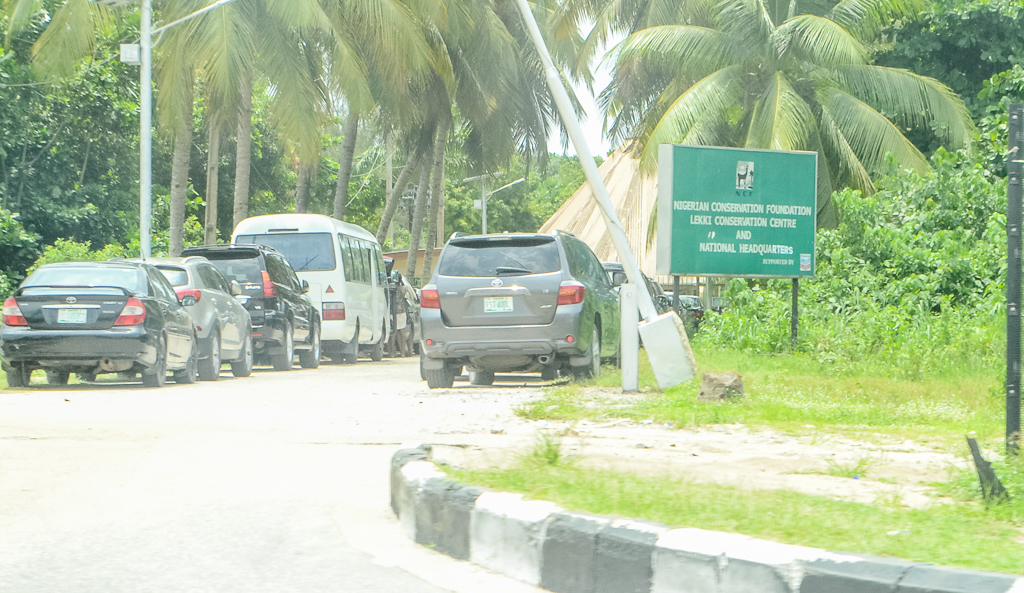
The post COVID-19 era is characterised by a lot of lessons, especially in the areas of human and ecosystem health. The global lockdown saw a rapid decline in human activities and for the first time in modern human history, we experienced the planet’s resilience, its ability to recover from decades of anthropogenic impacts.
As the air became clearer, the waters became less polluted, wildlife appeared to venture into areas not seen before, neither thought possible. For example, the waters of Venice became clearer, and fishes and dolphins returned, prompting the return of swans in this beautiful area.
In other areas, mammals ventured into roads as non-essential movements of humans declined. This event provided an unparalleled opportunity for humankind to understand and experience its influence in a shared ecosystem. In Nigeria particularly, pollution levels dropped in cities like Lagos, improving the general quality of the ecosystem. We learned and understood how a complex ecosystem can take care of itself if human activities are managed sustainably.
In addition to these observed changes, various reports showed that the coronavirus disease (COVID-19) itself is zoonotic, most likely to have originated from the close interaction of humans with wildlife. Overall, we saw the need to intensify efforts to manage the relationship between humans and the other elements in the shared ecosystem.
For the Nigerian Conservation Foundation (NCF), there was a redefined approach with the emergence of a Strategic Action Plan (SAP), a comprehensive document to guide its conservation activities, drawing from the lessons of years of conservation efforts and the COVID-19 lockdown and applying it in the post-COVID-19 era. The SAP is an institutional document, a five-year plan with four major pillars, namely: Partnerships; Climate Change; Green
Recovery Nigeria (GRN) and Saving Species in Peril also called the Species pillar. Since the launching of the SAP document which is meant to guide NCF’s activities from 2021 to 2025, the Species pillar has embarked on a complex web of programmes anchored on but not limited to five focal species. The focal species are elephants, lions, chimpanzees, pangolins, and African Mahogany. These species are important as they are all threatened and are flagship species upon which conservation activities designed around them will benefit other species and humans. This is important and aligns with NCF’s vision, which is to pursue “A Nigeria where people prosper while living in harmony with nature.”
Some of the Species pillar projects include the Saving Wildcats Project in Kainji Lake National Park, Niger State. This project implemented by NCF, and partners is aimed at promoting the conservation of lions and leopards through efforts that involve all stakeholders including the park management and the support zone communities. Activities in the project include sensitisation and promoting sustainable natural resource exploitation by the local communities.
There is also the training and equipping of park rangers for more effective monitoring of the habitat and the species in the park. NCF is collaborating with the local farmers and herders’ association to promote livestock management in closed farming instead of indiscriminate grazing among cattle farmers, a major stakeholder group in the support zone community.
The conservation of vultures has also expanded through several activities, from increased awareness to the promotion of alternatives to belief-based use of vultures and vulture parts. NCF has also piloted a citizen-oriented Vulture Safe Zone project, which is a community-based approach to species conservation. It promotes project ownership among the communities where remnant vulture populations are found. There is also further awareness on the use of sustainable alternatives to animal parts including vultures.
There are also efforts towards the conservation of chimpanzees in the support zone communities of Cross River National Park. This project is situated in Eko-Isai community which is a major support zone community around the park. The decline of the chimpanzee population and other biodiversity in the park is attributed to unsustainable resource exploitation and land use change. If this is addressed, habitat alteration and destruction will reduce, the habitat quality will improve, the forest areas will regenerate, and species recovery will follow.
NCF has continued the elephant conservation in Omo Forest Reserve.
The Omo Forest project is an NCF led initiative to protect the critically endangered forest elephant. Poaching, logging, farming, and the expansion of human settlement continue to threaten the species and the habitat, the project continues to manage the site to mitigate the impact on the elephant and other species in the reserve. NCF has also partnered with the community-based organisation to create awareness on the protection of the elephant population in Andoni Island, Rivers State.
The organisation has also led in the conservation of inland and coastal wetlands; there are a series of activities continuously implemented to protect resident and migratory water birds that utilise these sites. There is also a citizen-oriented approach where individuals from the communities are trained and incorporated into the species and habitat monitoring.
The Hadeija Nguru wetland project which has been managed by NCF is one of the most remarkable sites. It is RAMSAR site, a World Heritage site and it is now one of the newly designated parks in Nigeria.
Other species conservation activities include the conservation of endangered sea turtles, education, and awareness to promote knowledge on species conservation, especially on important global days. NCF has also partnered in advocating for policies to effectively protect species and their habitats, making significant contributions to the National Strategy on Combatting Wildlife and Forest Crimes in Nigeria.
As we learn to promote a more sustainable post COVID-19 era, where we have learned about the planet’s resilience in real-time and its ability to recover is sustainably exploited. The headquarters of the Nigerian Conservation Foundation also serves as a living laboratory and evidence of what an ecosystem can become if sustainably managed. NCF continues to pursue that vision of a sustainable nation where people live in harmony with nature, especially in the post COVID-19 period.
Egbe is the senior manager, Species Conservation, Nigerian Conservation Foundation (NCF).






